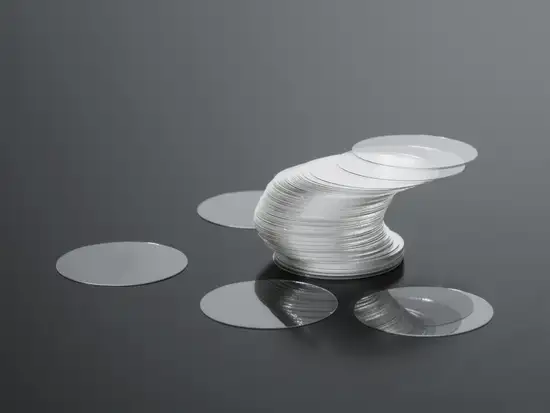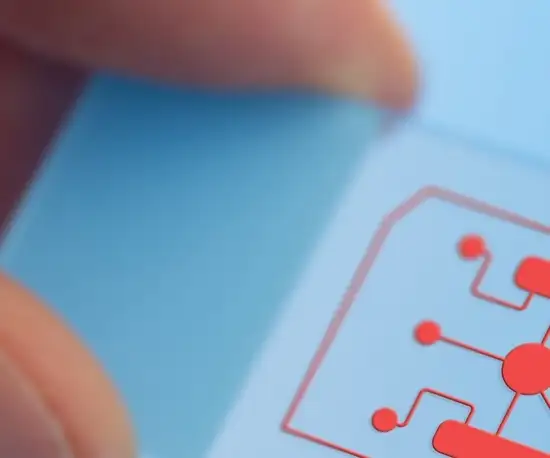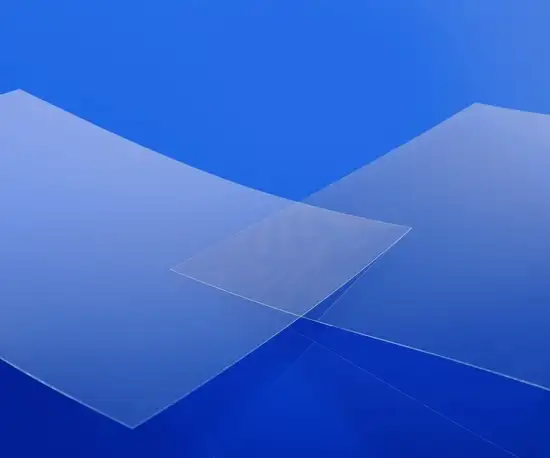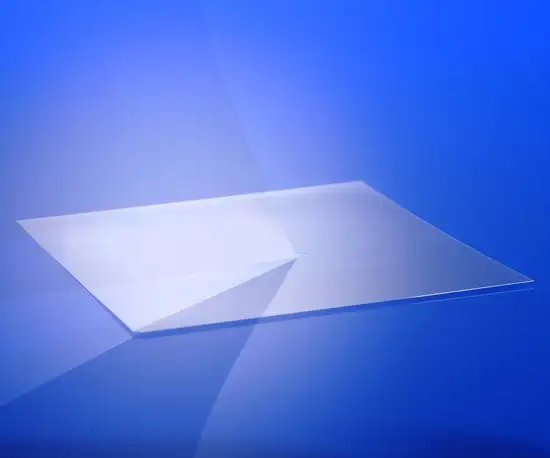Product Variants of D 263®
D 263® M

CHARACTERISTICS
D 263® M is a cornerstone of reliable research, offering a chemically optimal composition that reduces autofluorescence and ensures chemical resistance, safeguarding sample integrity. Precisely optimized for microscopy, its refractive index guarantees image clarity and color accuracy, meeting ISO 8255-1 standards for valid and dependable results. Available in thicknesses from 0.1 mm to 0.21 mm and various easy-to-cut sheet sizes for tailored research needs.
YOUR ADVANTAGES
- Meets stringent ISO 8255-1 standards, ensuring unmatched quality and reliability.
- Comes in diverse sheet sizes and thicknesses from 0.1 mm to 0.21 mm, with custom options available, providing unmatched flexibility.
- Enables accurate, reliable, and consistent results in microscopy applications.
- Offers precise geometrical properties and superior optical performance, crucial for high-resolution, distortion-free imaging.
D 263® bio

CHARACTERISTICS
D 263® bio achieves very low intrinsic autofluorescence across the UV to NIR spectrum, while consistently tight refractive index tolerances help to ensure accurate diagnostic results in the biotech field. Strong chemical stability also makes it a reliable and long-lasting product for use in diagnostics.
YOUR ADVANTAGES
- Biocompatibility, offering reliability and durability in biotech applications.
- Chemically toughenable and easy to structure.
- High signal-to-noise ratio and consistent optical performance resulting in strong diagnostics performance.
- Flat, non-porous, fire-polished surface with the availability of wafer dimensions or custom-cut rectangular substrates.
D 263® T eco

CHARACTERISTICS
D 263® T eco offers a wide thickness range allied to extremely high thickness tolerances, low TTV (total thickness variation) making it a versatile product for adaptation to future product miniaturization.
ADVANTAGES
- A highly effective substrate for a wide range of coatings (AR / IR-cut filter).
- High optical precision results in outstanding camera imaging.
- Robust chemical resistance means it’s able to perform in harsh environments.
- Manufactured with environmentally friendly refining agents instead of arsenic and antimony.
D 263® LA eco

CHARACTERISTICS
D 263® LA eco thin glass has a coefficient of thermal expansion that fits with packaging materials such as ceramics. It offers low alpha radiation alongside high luminous transmittance. Easy to cut with tight thickness control, this unique glass is manufactured without using the refining agents arsenic and antimony.
ADVANTAGES
- Extremely low alpha radiation and high luminous transmittance.
- Available as sheet glass and blanks in typical end-application thicknesses ranging from 0.3 mm to 0.7 mm.
- Manufactured with environmentally friendly refining agents instead of arsenic and antimony.
- Easy to cut and customize for use in different applications.
